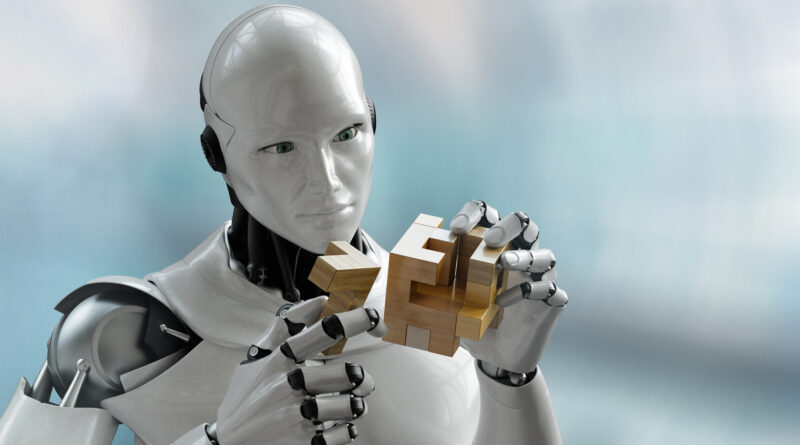Elon Musk to Launch AI-Powered Macrohard, Challenging Microsoft’s Reign
Renowned entrepreneur, Elon Musk, is reinforcing his involvement in the artificial intelligence (AI) arena. Following his endeavors with xAI corporation, a notable entity which recently procured X (previously known as Twitter) for a staggering $33 billion, Musk has proclaimed his intent to establish an exclusively AI-powered software firm, tentatively named ‘Macrohard’. This intriguing revelation was made via X, where he appealed to experts in the AI discipline to join his xAI team and thus contribute to the establishment and growth of this novel company. Musk humorously noted that despite the playful nature of the name ‘Macrohard’, his ambition for this project is seriously grounded in reality.
News of Musk’s new venture stirred a variety of reactions on digital social platforms, becoming a viral topic ripe with ingenious memes. Nonetheless, Musk’s depiction of Microsoft as a solidly software-focused entity isn’t entirely accurate. Indeed, Microsoft is globally renowned for its pioneering software solutions like Windows and Microsoft 365 Office, which have garnered worldwide adoption over several years. However, the tech giant has also dipped its toes into the hardware industry, with ventures spanning the computing, gaming, and mobile hardware domains.
Under the leadership of its current CEO, Satya Nadella, Microsoft is gradually transitioning from its initial ‘software factory’ vision, as originally defined by its founder, Bill Gates. The contemporary focus emphasizes three key strategic areas: AI, cyber security, and quality. In recent years, Microsoft’s involvement in the AI sphere has intensively grown. This shift was further consolidated following its considerably large investment in OpenAI, the AI research organization.
Subsequent to this major investment, Microsoft has actively pursued the integration of advanced AI technologies throughout its legitimate tech stack, striving for transformative, next-gen capabilities. Despite these collective measures to refine the user experience of their Copilot software for Windows, it appears the preference of users leans towards OpenAI’s ChatGPT. This AI-powered tool commands a significant user base, attracting upwards of 700 million users on a weekly basis.
Curiously enough, even corporate users seem to favor ChatGPT over Copilot, despite the underlying technology in both tools originating from the same source. The ongoing discourse between Musk, Microsoft, and OpenAI is indicative of deeper complexities. Musk’s most recent assertion in this unfolding saga is a bold one: ‘OpenAI will obliterate Microsoft!’
Ever since Musk departed the board of ChatGPT’s parent company, his critical attention towards Microsoft and OpenAI has been relentless. He has initiated legal procedures against the artificial intelligence entity twice. The lawsuits paint OpenAI as betraying its founding principles, after it stated an intent to pivot towards a profit-oriented model in response to investor demands.
More recently, Musk launched yet another legal attack against OpenAI, alleging fraudulent intentions behind their ‘humanitarian mission’, aimed at securing investor funds, while accusing the institution of partaking in criminally deceptive practices. The Microsoft-OpenAI partnership has generated significant buzz within the tech industry, inciting an array of speculations as to why Microsoft may refrain from utilizing OpenAI’s technology in the imminent future.
Furthermore, OpenAI’s recent strategic shift towards operating as a for-profit entity, away from its roots as a pure research organization, has stirred unease among industry observers. There are numerous indications hinting at Microsoft’s strategic hesitance, possibly an effort to safeguard its own interests against this unexpected direction, causing a delay in the transition execution. An OpenAI confidant reported, ‘Hesitation seems to be Microsoft’s last resort option’.
In light of OpenAI’s release of its GPT-5 model, Musk remarked ominously, ‘OpenAI will devour Microsoft’. However, the response from both Satya Nadella and Sam Altman, leaders at Microsoft and OpenAI respectively, has been notably calm. They don’t seem perturbed by the predictions, essentially expressing a resilient and optimistic mindset towards the challenge at hand.
Microsoft’s CEO Nadella admonished, ‘People have been attempting for half a century, that’s where the excitement lies! Each day is an opportunity to learn something new, innovate, collaborate, and square off’.
It’s crystal clear that Musk’s ambitious pursuits in AI, combined with his controversial impacts on the status quo of tech giants like Microsoft, signal a new and exciting era in the rapidly evolving artificial intelligence scape. Competition, after all, is the backbone of every healthy market dynamic. Only time will tell how these giants will influence the future trajectory of technology.
The ongoing discourse, lawsuit battles, and candid declarations point towards an intriguing, albeit complex, landscape in the AI arena. The end game, however, might yet be undecided. What we can be sure of, though, is that the collision of these formidable entities – Musk, Microsoft, and OpenAI – will indubitably catalyze unprecedented advancements and challenges in the overarching narrative of artificial intelligence.
In conclusion, bold claims and acrimonious debates aside, the telltale signs of a fascinating saga unfolding in the AI landscape are evident. The triad of Musk, Microsoft, and OpenAI paints a multi-faceted picture of cooperation, competition, and controversy, likely to redefine the chronicles of artificial intelligence as we know it. The world watches on, eager to witness the next chapter of this riveting AI narrative.

